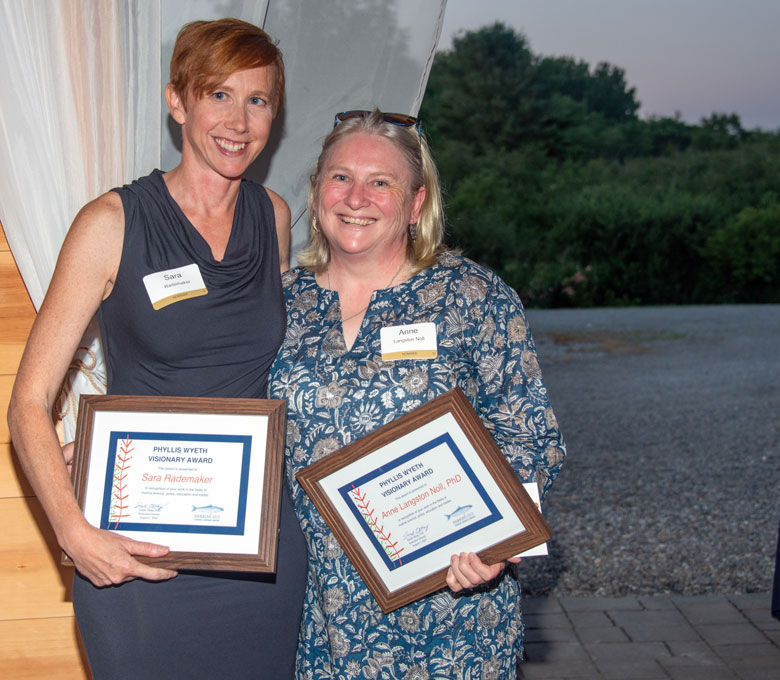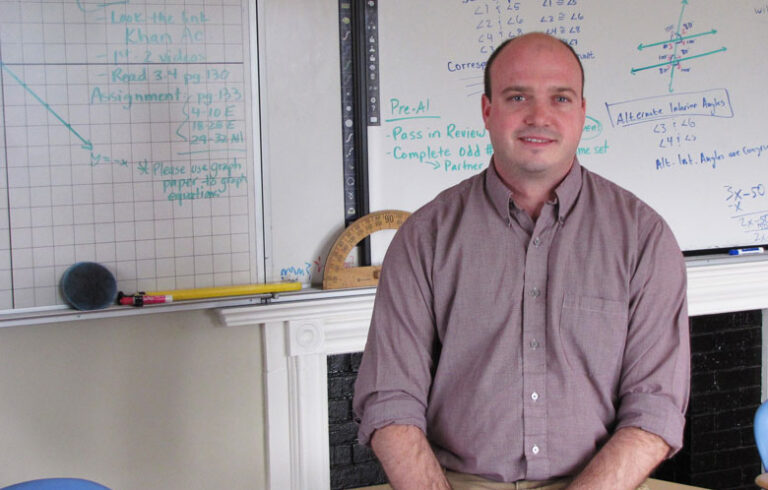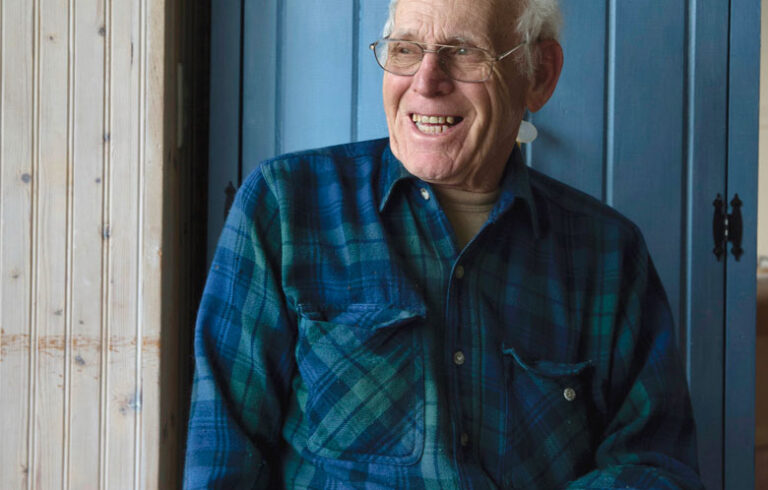In August, Herring Gut Coastal Science Center honored two women active on the coast with an award named in honor of Phyllis Wyeth, founder of the educational center based in Port Clyde.
The Phyllis Wyeth Visionary Award was given to Anne Langston Noll and Sara Rademaker.
Langston Noll, as associate director of the Maine Aquaculture Innovation Center, leads and supports research, workforce development initiatives, education, and outreach projects across the state and beyond, said Herring Gut CEO Sarah Oktay.
“She also uses her own farm, Pemetic Sea Farms, as a platform for experimental work and teaching, often hosting visitors, students, and others curious about aquaculture and wanting to gain experience as they start a business or a career in the industry,” Oktay added.
Sara Rademaker, left, and Anne Langston Noll, winners of the Phyllis Wyeth Visionary Award.
Also honored was Sara Rademaker, owner/CEO at American Unagi.
“Sara has exemplified self-starting entrepreneurism and has carved out an entire new industry—America eel cultivation and grow-out from glass eels to smoked adults,” Oktay said. Rademaker was an educator at Herring Gut, 2009-2011.
The late Phyllis Wyeth, Oktay said, “had both the vision and the tenacity to pursue this dream of a place for kids to learn about the marine world and the communities of fishermen and lobstermen they came from. She saw into the future when aquaponics would be needed to feed the population and aquaculture could help support feeding our families sustainably while reducing overfishing.”
Wyeth, Oktay continued, “believed in education for all, in protecting our coasts and our maritime trades, in the power and ability of young people, and in strengthening our connection to the sea. She valued each person on their own merits.”
These people were nominated by their peers and those who benefited from their impactful contributions to the fields of marine science, marine education, aquaculture innovation and organization, fisheries, policy, and conservation.
Six other key players in the marine and coastal economies were nominated for the award by peers for making contributions to marine science, marine education, aquaculture innovation and organization, fisheries, policy, and conservation.
They include:
• Jaclyn Robidoux, marine extension associate at Maine Sea Grant, whose work drives public engagement with aquaculture and helps position Maine as a national leader in sea farming, including Maine Seaweed Week and the Maine Oyster Trail. She is a role model, leader, and mentor to many in the aquaculture community.
• Dana Morse, a senior extension program manager and aquaculture lead at Maine Sea Grant and University of Maine Coop Extension. Morse has worked at the intersection of commercial fishing and aquaculture, developing approaches that maximize the integration of these industries.
• Susie Arnold, a senior ocean scientist at Island Institute, has worked for the organization for 12 years where she leverages her deep knowledge of Maine’s coast and the impacts of climate change on Maine’s fisheries and fishing communities.
• Antonia (Toni) Small, an oyster farmer and owner of Ice House Oysters. She is an ambassador for the working waterfront in her interactions with the local community, but also throughout Maine, offering a realistic perspective of aquaculture development while respecting other types of fishing and harvesting of seafood.
• Monique Coombs, director of community programs at Maine Coast Fishermen’s Association, has led efforts in the Midcoast to bring the public, fishermen, aquaculturists, and others together to talk about protecting working waterfronts. She is a smart and effective consensus builder who recognizes the importance of engaging with regional networks and educating communities about the working waterfront.
• Kate Stookey, president and CEO of Maine Coast Heritage Trust, has worked to preserve ecologically important salt marshes along the coast using real-time research to inform restoration practices that have the potential to enhance carbon storage and restore vitality.
For 25 years, Herring Gut has served a variety of students of all ages in the Midcoast and beyond. Kids come in for an hour, a day, a week, a semester, or year after year to learn about the width and breadth of the natural world and the people who depend on it. They learn about marine plants and animals, our fisheries, how to grow food using fish waste, what changes are occuring in the sea with warming temperatures and ocean acidification, and what they can do to be informed and to help promote marine health.
The Herring Gut Coastal Science Center worked with 2,139 students in over 90 programs for a total of approximately 15,000 contact hours. The center works with kids in their classrooms year-round, then hosts after-school programs at their campuses, and at Herring Gut. Each summer it offers weeklong camp programs and daily programs.





